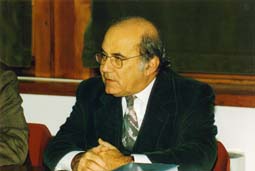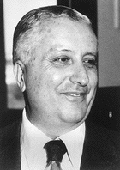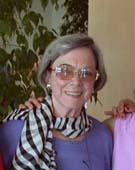Personal tools
News from ICTP 105 - Monitor


The World Health Organization's (WHO) global SARS (severe acute
respiratory syndrome) alert put the ICTP Medical Services
on special alert for several months beginning last April. Visitors
from all affected areas were required to undergo a medical test,
both upon their arrival and once again 10 days later. Letters
were sent to all scientists and staff outlining the Centre's response
to the outbreak and a special email address was set up to field
questions about the virus. Nurses' hours, moreover, were extended
to the weekend. Only 15 of the 68 scientists from China and nearby
countries who had been invited to ICTP during the alert actually
arrived--a reflection of how SARS impeded travel both to and from
affected areas. All the 15 scientists who arrived at ICTP underwent
two medical examinations. On 5 July 2003, WHO announced that the
SARS alert had been resolved and the ICTP Medical Services returned
to its normal operating procedures.
Ghirardi to Head Consorzio

GianCarlo Ghirardi, head of ICTP's Associate programme
and professor of physics at the University of Trieste, has been
appointed president of the Consorzio per l'incremento degli
studi e delle ricerche dei dipartimenti di fisica dell'Universita
di Trieste. The consortium, established in 1964, promotes
local and regional initiatives in physics. Ghirardi replaces Margherita
Hack, past director of Trieste's Astronomic Observatory.
Centre Art Exhibition
The ICTP Cultural Committee's latest art exhibition, "An
Art Rendez-Vous in Trieste," featured the works of six well-known
artists from southern Italy. The exhibition, which was located
in the lobby of the Main Building, began 20 May and continued
through 20 June.
IN MEMORIAM

Ilya Prigogine, a Nobel Laureate in chemistry (1977), died on 28 May in Brussels. He was 86. Born in Moscow in 1917, Prigogine was just a few months old when his family emigrated first to Germany and then to Belgium, the latter becoming his adopted homeland. He studied chemistry and physics at the Universite Libre de Bruxelles, earning a Ph.D. in 1941. Soon after graduation, Prigogine began his intense life-long examination of the thermodynamics of irreversible processes, enabling him to forge critical links between physics, chemistry and biology. In his later years, he sought to extend his interdisciplinary pursuits to sociology and economics, becoming one of the world's leading authorities on complexity. In the United States, where he worked from 1967 until his death, Prigogine founded and then directed the Center for Statistical Mechanics at the University of Texas at Austin, later named in his honour. In 1959 he also became director of the International Solvay Institutes for Physics and Chemistry in Brussels. Prigogine was a brilliant lecturer and essayist. His speeches and writings fascinated scientists, students and laymen alike, and his books-notably, La Nouvelle Alliance, written with Isabelle Stengers-have been among the best-selling books in science in many countries. In 1968, Prigogine visited ICTP to participate in the Centre's historic Symposium on Contemporary Physics.

George Marx, an eminent figure in Hungarian science and frequent visitor to ICTP, died last December. He was 76. After earning undergraduate and graduate degrees in physics and chemistry at the University of Budapest, Marx turned his considerable analytical skills to high energy physics, astronomy and later bioastronomy. He confirmed the earliest models of the superheated early universe and, later, his research on neutrinos helped to broaden the study of astrophysics. During the Cold War, Marx developed many personal contacts with leading researchers on both sides of the Iron Curtain. A passionate teacher, he was a leading advocate for the modernisation of the physics curriculum in Hungary, coauthoring several books with teachers and numerous newspaper and journal articles. He travelled extensively in Asia and Africa, where he was asked by UNESCO to organise physics seminars for teachers. With ICTP's support, in the late 1980s, Marx launched a series of workshops in Africa on applications of microcomputers in science and mathematical education that played a major role in expanding the use of computers in science throughout the continent.

Bruna Marcuzzi, long-time head of housekeeping at the
ICTP guesthouses who retired in June 2002, died on 6 May. She
was 78. Many Centre visitors will remember Bruna as the person
who first welcomed them to ICTP and then made their stay so hospitable.
Colleagues will remember Bruna for her warmth and enthusiasm.
Centre staff and visitors extend their condolences to Bruna's
family and friends.